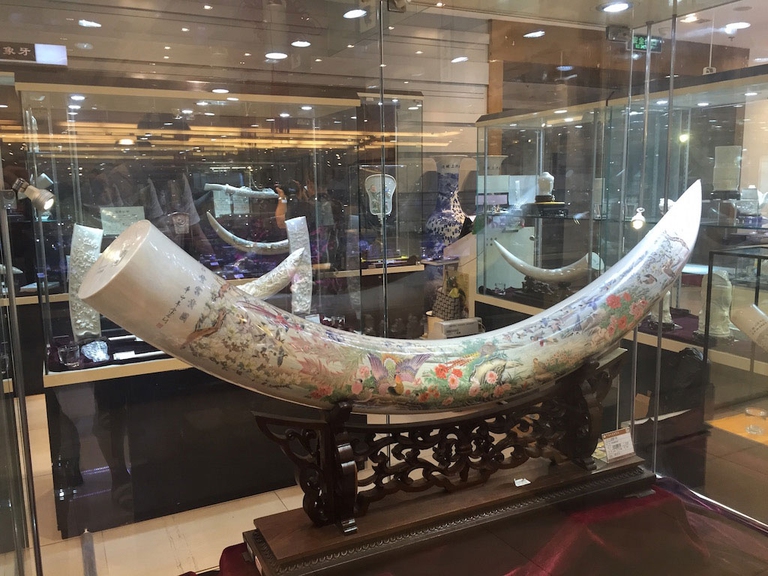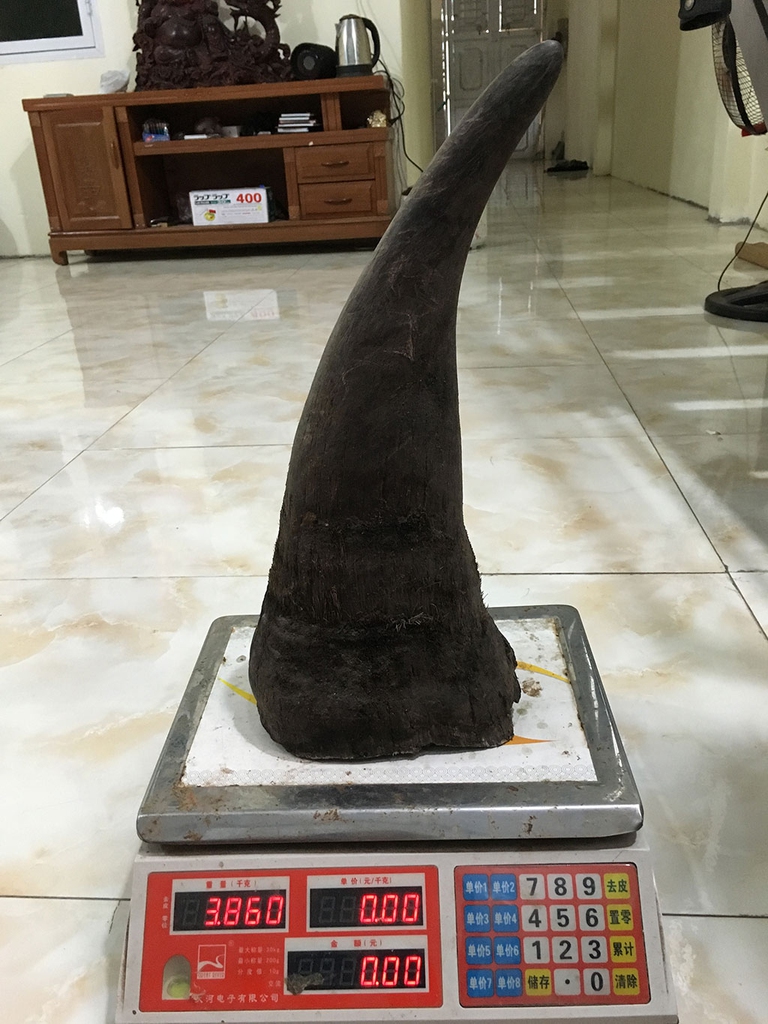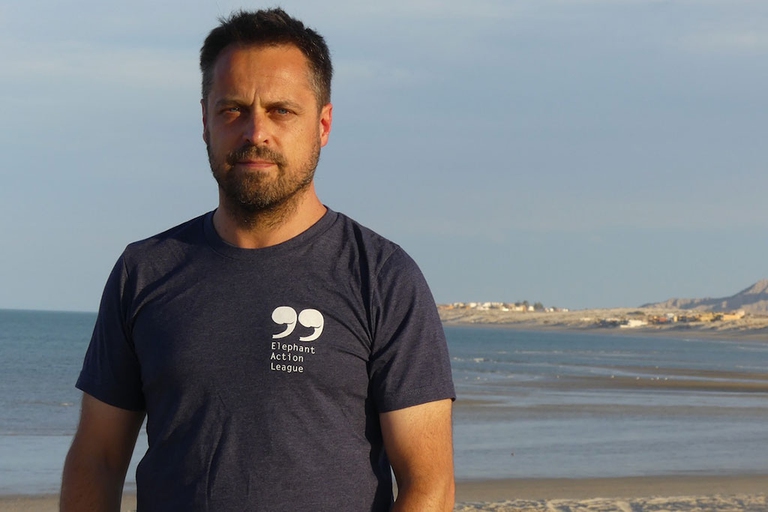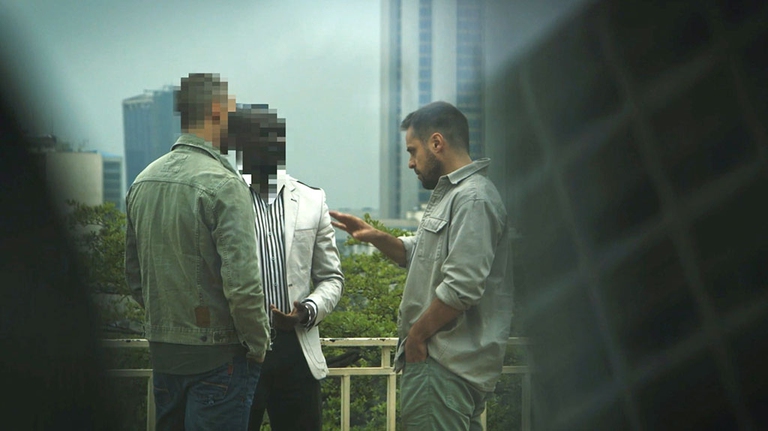
Our species took its first steps in a world covered in trees. Today, forests offer us sustenance, shelter, and clean the air that we breathe.
The first NGO that puts an intelligence network at the service of the planet. People who work in the shadows to eradicate poaching and save elephants along with other endangered species. This is the Elephant Action League, and we spoke to its founder Andrea Crosta.
The person we’ll be talking about appears in the documentary The Ivory Game, in the part in which the tusks of elephants ruthlessly killed in Africa reach the most important hub that connects them to the black market: Hong Kong. This is where most of the illegal ivory handled by poachers is loaded onto ships and hidden inside containers that will later be sorted and “parked” in the back of souvenir and luxury item shops, waiting to be sold to more or less informed tourists and serial traffickers.
Unless the Italian Andrea Crosta, co-founder of the Elephant Action League (EAL), and his team of experts with experience in the intelligence field are able to anticipate what is about to happen and communicate it to the authorities. This scene in The Ivory Game is crucial, as is Crosta’s work. The documentary, which can be found on Netflix, was created through a collaboration between one of the most important European documentary production companies, Terra Mater, the Vulcan foundation set up by Paul Allen, co-founder of Microsoft, and Leonardo DiCaprio’s film production company, Appian Way.
Can you tell us how the Elephant Action League was created?
I was working in a wildlife park in Kenya with some local rangers in 2012 and I ran into poachers killing elephants, right there and then, and as if I had been struck on the road to Damascus, I realised I wasn’t happy with what I was doing. I made a lot of money working in intelligence, but I wasn’t really satisfied. So I decided to leave everything and set up an NGO in this field. I saw it in the eyes of the rangers, they couldn’t do anything to save those elephants nor could they deal with this global crisis. I thought I could combine two worlds, the one of conservation and that of security, intelligence and technological investigation. Thus, the Elephant Action League was born, the first intelligence agency that acts in the interest of the planet. Its objective is to put an end to the environmental crimes that generate 250 million dollars every year.
Where did life take you before embarking on this journey?
I was born with a great passion for nature and wildlife. You can’t do this job without being passionate about it since childhood. I was awarded a degree in natural sciences in Milan and then I started working for La Torbiera Wildlife Park close to Agrate Conturbia, a centre for the reproduction of endangered animals. I set up one of the first Italian e-commerce companies in 1998, in the early days of online shopping. I moved on to new technologies through a Master’s in business administration and worked as a homeland security consultant for almost 20 years. The fact that I worked with huge companies that invested in technology, some of which became famous after the Snowden case, made this a peculiar job. The clients were mostly governments, but they were also businesses and individuals.
What is it you actually do, and how are you organised?
We created a group called Special Operations Division, which has remained secret for a long time as a precautionary measure. I lead it and it is made up of people coming exclusively from specific United States agencies, two from the FBI and two more from the Department of Defence. We also have analysts who worked in contrasting Islamic terrorism, El Chapo, drug cartels, paedophiles, Russian and Italian mafia in the USA before joining the EAL. I told them: “I want to use your expertise, skills and networks. I don’t care if you know nothing about conservation, because the only thing that matters is stopping those who are responsible for the destruction of the planet and the extinction of so many species,” and I’m not talking about the poachers, most of the time they have nothing but mouths to feed and children to send to school. I could’ve been a poacher if I’d found myself in their shoes and was offered a three-year salary to kill an elephant.
If the poachers aren’t to blame, then who is?
Those who are truly responsible are the traffickers, businesspeople, brokers and traders who lead this industry. We’ve created a network of collaborators, sources and undercover agents located in key countries; they give us the information we need to fight this complex system. These collaborators pretend to be traffickers or buyers for months to try to gather any possible detail. We also try and help law enforcement, but it isn’t an easy task as in many countries there is too much corruption, whilst in others we have a great relationship with local law enforcement but a lack of resources means environmental crimes aren’t considered particularly important – this is where we come in. This year in China we concluded the first investigation carried out by an NGO on the rhinoceros horn trade. We identified 55 people of interest in China and Vietnam who were illegally trading rhinoceros horns or horns from other protected species. We shared our report with Chinese law enforcement, Interpol and the South African police. This was all done to help the governments defeat those responsible, which as I already mentioned aren’t poachers but those who take advantage of them.
The documentary The Ivory Game shows that the black market is supported by the corruption of those who should be fighting it. What is your role in this context?
I can’t say where we’re active, but thanks to our work eight people were arrested over the course of ten years in an African country. The police don’t always know they’re carrying out a mission with the help of our team on the field as we often act in the shadows to avoid being decapitated. Thailand is one of the countries where we’ve been able to build a great relationship with local law enforcement. We can give them real time information without fearing it will fall in the hands of the wrong person. One of the most common mistakes is to arrest someone without realising that waiting could give better results and lead to catching “bigger fish”. It’s like the war on drugs. Busting a drug dealer is just the first step that leads to understanding where they bought the drugs and who they sold them to.
What happens when someone is arrested, how are they punished?
It depends on the country. Some countries have very strict laws, for example if you’re found in possession of an ivory container in China you’ll spend the rest of your life in jail. Some African countries have recently updated their laws, and jail sentences have become much longer. The problem is that even if the laws are very strict they become utterly useless if they aren’t enforced. Fortunately, China has changed its perspective on this matter, this is essential to preserve our planet. We can’t win this war without China. EAL isn’t one of those NGOs who blames the Asian colossus. We try to talk and collaborate. And I’ve understood that in China reasoning come from an exclusively from a legal standpoint. You can’t tackle the issue from an ethical or cultural point of view; Chinese values are very different from ours. But the Chinese are very sensitive to their laws being broken; therefore we put the clues under their noses. If they wanted to, they could destroy the black market of the main endangered species within a week. But it isn’t one of their priorities at the moment.
What dynamics are behind the ivory trade and that of other animal parts?
The main problem with preserving elephants is represented by the incredible amount of ivory that travels from Africa to Asia every year even after the Convention on International Trade of Endangered Species (CITES) was implemented. The ivory is obviously “fresh”, so poaching isn’t the only problem; in fact every step that leads it to China is illegal. It is illegal to trade ivory in the country where the elephant was killed, it is illegal to trade internationally as well as sell it in Asia.
China has taken the most important decision of the last few decades: it has declared it will shut down its legal ivory market starting from January. It said it would do this in 2017 and it seems they’ve kept their promise by slowly closing down the stores and all places where ivory was carved and inlaid. The legal ivory market in China has been an important factor in the elephant crisis of the last few years. It was an enormous black hole, a place where all of the illegal ivory coming from Africa was laundered: it would enter the legal trade, was laundered and then put on the market. The shops were meant to sell ivory that had a tag with all the information on that product. What really happened was that the tags were often never attached to the ivory so that they could be used for another item, and so on, forever. 2018 will be a decisive year. I’m convinced that the Chinese government will manage to drastically decrease the illegal importation of ivory from Africa, causing a massive drop in elephant deaths (35,000 per year in the last few years).
What is the best way to stop poaching worldwide?
With the help of another person, in 2009 I carried out the first investigation on the ivory trade that involved Islamic terrorist group al-Shabaab. Different people profit from elephant tusks depending on the African region. But sooner or later it all leads to African or Asian traffickers who have control over international illegal exports.
Many elephants are killed in Africa but they can only be exported in large numbers from a few ports or airports, for a total of seven to eight hubs. The port of Mombasa in Kenya, the port of Zanzibar and the Port of Dar es Salaam in Tanzania, the port of Maputo in Mozambique, then Cape Town in South Africa, and all the way back to Gabon. Then there are the international airports in Kenya, Tanzania, South Africa and a few more in central Africa.
The only solution is to destroy the demand for ivory. I’m convinced that one of the positive effects of our intelligence work is to avoid the “militarisation of conservation”, something that worries me a lot. If you visit a national park and ask what they need to fight poaching they’ll tell you they need men, weapons, ammunition, missiles and drones. This is far from the truth. You can’t control a territory with rangers and weapons: you control it with intelligence, destroying the demand.
How do we destroy the demand for ivory?
The demand can be destroyed in two ways: acting on the end of the supply chain by closing the legal market and using a heavy hand on traffickers like is being doing in China; or by intercepting the brokers and traders who are responsible for the whole trade network.
For over a year we’ve been investigating a group of people capable of trading almost 500 illegal rhinoceros horns in a year in Vietnam (which isn’t a very collaborative country). This means that since almost 1200 rhinoceroses are killed in Africa every year, this group on its own deals almost half of those horns. This is what made us understand that it is important to take action targeting these people as they’re the root of the problem, not the poachers. This doesn’t mean the poachers should be free to do as they wish because animals must be protected. But the person who launders 500 horns every year is the problem. That is where we have to act.
What can ordinary people like us do?
You need to be careful when you travel. When going on a safari in Africa or visiting countries in Southeast Asia like Vietnam, Cambodia, Thailand, Laos. You have to keep your eyes peeled, you can take pictures – if it’s not too risky – and you have to be careful about what you buy. If you find some ivory, a tiger tooth or something similar you need to know that buying it is illegal. This is where awareness, information and education come into play. This is why you, the media, are complementary to our job.
What is the situation in Europe?
Chinese and United States laws are much stricter than those in Europe. The legal ivory market has almost been completely shut down both in China and the US. Shops can only sell ancient ivory that is more than 100 years old. On the other hand, Europe still has an active legal market.
Let’s end on a high note. Do you think it’s still possible to save endangered animals?
Of all the endangered species, I only have hope for the African elephant. There are still 400,000 elephants in the world and China’s decision will certainly help, as well as the media campaign that has been carried out over the last two years. One that other species weren’t graced with.
I’ll always remember an ivory salesman I met in southern China as we were filming the documentary. When I asked him about ivory he became very angry, he didn’t want to answer, he said ivory is no longer a good business. He said, “I don’t want my children to do this”, and when I asked him why he answered: “Because now even Obama and Prince William are against us”. This made me think that international pressure is working! If the pressure is strong and constant it can even get to China. Unfortunately other animals don’t receive the same treatment. There are very few rhinoceroses left, and there are more captive tigers in Texas than tigers in the wild.
Siamo anche su WhatsApp. Segui il canale ufficiale LifeGate per restare aggiornata, aggiornato sulle ultime notizie e sulle nostre attività.
![]()
Quest'opera è distribuita con Licenza Creative Commons Attribuzione - Non commerciale - Non opere derivate 4.0 Internazionale.
Our species took its first steps in a world covered in trees. Today, forests offer us sustenance, shelter, and clean the air that we breathe.
Poachers in Africa are encroaching on wildlife land and killing rhinos in travel hot spots now devoid of visitors due to the coronavirus pandemic.
Actor and environmental activist Leonardo DiCaprio has contributed two million dollars to a fund to protect Virunga National Park in Congo from threats such as terrorism, the coronavirus and poaching.
For the first time in seventeen years, Iceland’s two main whaling companies won’t resume whale hunting. The announcement concerns this year’s season but could carry into the future.
The relationship between the coronavirus and wildlife is complex: while the pandemic may lead to a reduction in the illegal trade in wild animals, it may also encourage it in other respects.
The largest coral reef in the world is severely threatened by climate change, but researchers are developing strategies that could contribute to saving the Great Barrier Reef.
NGO Free the Bears has opened a mountain sanctuary for moon bears in Laos. With the government’s help, it aims to close all bile farms by 2022.
Seychelles have extended its marine protected area, which now covers over 400,000 square kilometres, an area larger than Germany.
The tapir was reintroduced into Brazil’s Atlantic Forest, the country’s most at-risk ecosystem. The species can play a key role in the forest’s recovery.











